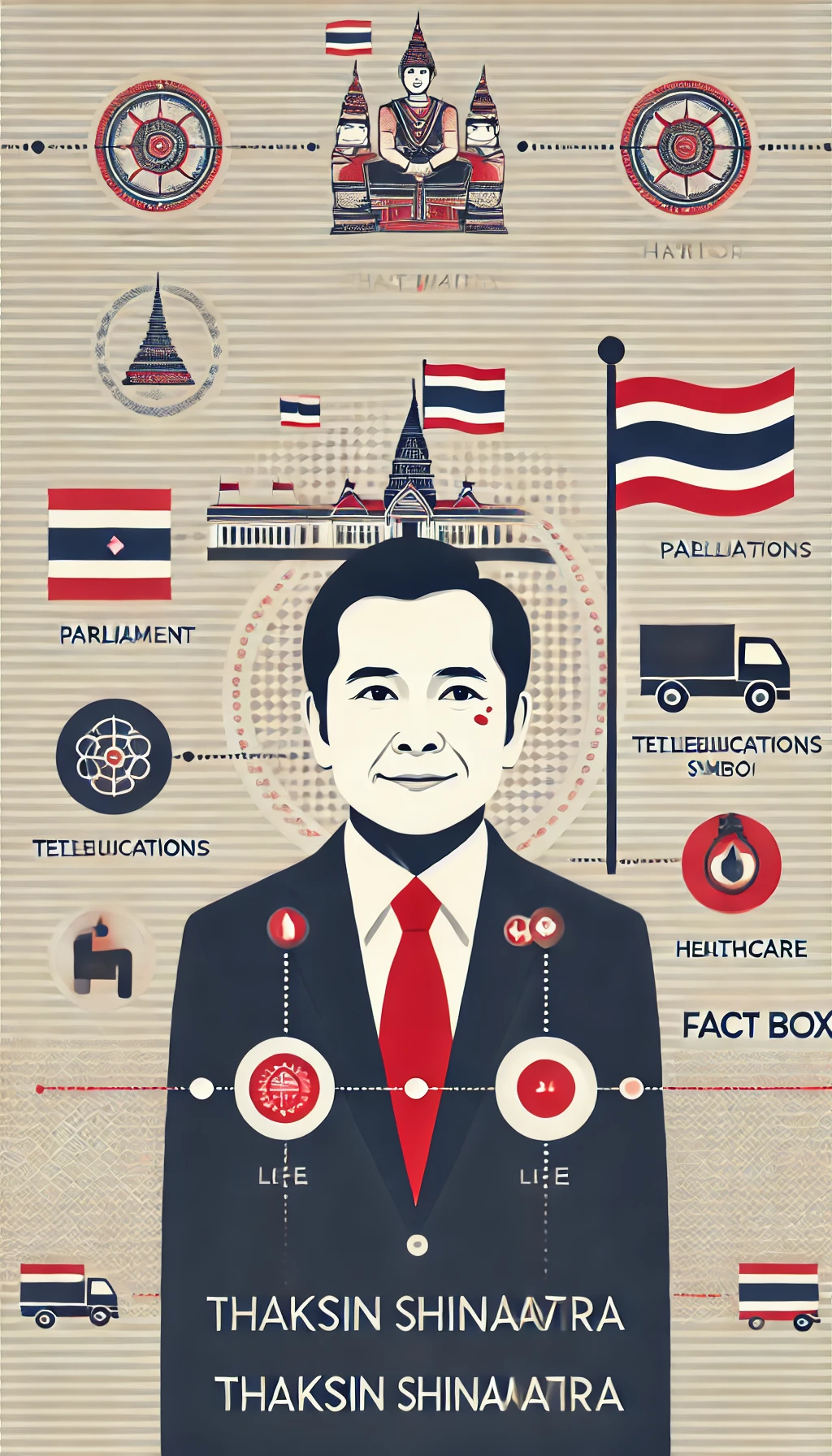Thaksin Shinawatra’s Return to the Thai Political Scene
Thaksin Shinawatra, a controversial yet popular former prime minister of Thailand, has been a pivotal figure in the country’s politics for over two decades. As the leader of the Thai Rak Thai Party (TRT) in the early 2000s, Thaksin focused on populist policies like improved healthcare, microloans, and rural development. His policies gained strong support from rural and working-class citizens but faced severe criticism from the elite and military, who saw his methods as authoritarian and corrupt. During his time in office, he also adopted a zero-tolerance approach to drug trafficking and supported the business sector, which boosted Thailand’s economy but raised concerns about human rights abuses.
In 2006, Thaksin was ousted by a military coup following allegations of corruption and abuse of power. He went into exile, and his assets were frozen. Despite his absence, Thaksin retained influence over Thai politics by supporting parties like Pheu Thai, his political successor. He has continued to command a loyal following, especially among the “Red Shirts” who opposed the military and monarchist circles.
Current Situation
After over a decade in exile, Thaksin returned to Thailand in August 2024 and surrendered himself to Thai authorities. He was sentenced to several years in prison for past charges, but the sentence was reduced to eight years following a royal pardon. Since then, he has been receiving medical treatment at a hospital in Bangkok, sparking speculation that he is receiving special treatment due to his political status.
Thaksin recently hinted at a political comeback and, according to reports, plans to make a public appearance at a Pheu Thai campaign event in Udon Thani. Many see this as a signal of his intent to re-engage actively in Thai politics and to support the party in upcoming elections.
Planned Future
The fact that Thaksin may actively participate in political campaigns indicates that he aims to consolidate Pheu Thai’s position in the face of future political challenges. His return could strengthen the party in northeastern Thailand, a region traditionally loyal to his policies.
Analysts speculate that his objective may be to take on a more prominent role in leading Pheu Thai forward, although he is unlikely to run for office himself. Instead, he is expected to mentor younger politicians, including his daughter Paetongtarn Shinawatra, who has long been seen as his political heir.
Significance and Potential Challenges
Thaksin’s return comes at a time when Thailand is experiencing political turbulence, with increased demands for reform from younger generations and growing resistance to military influence. While his comeback is seen as an opportunity to unify Pheu Thai’s divided voter base, he will likely face strong opposition from the conservative side and military leadership. Critics argue that his political re-entry risks increasing polarization in the country.
Thaksin’s return could also affect the relationship between various political institutions and the monarchy. Many conservative and monarchist groups see him as a threat to the status quo and are concerned about his influence. Meanwhile, some believe that his presence could contribute to stability, as he may serve as a bridge between Thailand’s political factions, provided he avoids provoking his opponents.
Looking Forward
If Thaksin continues to gain popular support and navigates legal hurdles, he could play a significant role in shaping Thailand’s political landscape. His popularity among rural voters remains strong, and if he regains his political footing, it could shift the balance of power in Thailand.
Whether he can achieve his ambitions or opposition forces will hinder his progress remains to be seen.

Fact Box: Thaksin Shinawatra
- Full Name: Thaksin Shinawatra
- Born: July 26, 1949, San Kamphaeng, Chiang Mai, Thailand
- Education:
- Bachelor’s Degree in Law, Chiang Mai University
- Master’s Degree in Criminal Justice, Eastern Kentucky University, USA
- Doctorate in Criminal Justice, Sam Houston State University, Texas, USA
- Career Highlights:
- Founded telecommunications company Shin Corporation (1983)
- Prime Minister of Thailand (2001–2006)
- Founder and Leader of Thai Rak Thai Party
- Political Achievements:
- Implemented universal healthcare (30-baht healthcare scheme)
- Introduced microcredit programs to assist rural communities
- Launched drug suppression campaign and large-scale infrastructure projects
- Controversies:
- Accused of authoritarianism and human rights abuses
- Faced corruption charges, leading to military coup in 2006
- Exiled for over a decade, with assets frozen
- Return to Thailand:
- Returned to Thailand in August 2024, sentenced to prison
- Sentence later reduced to eight years through royal pardon
- Family:
- Married to Potjaman Damapong (divorced)
- Has three children, including Paetongtarn Shinawatra, seen as his political successor
- Current Role:
- Expected to re-enter politics through support for the Pheu Thai Party
- Legacy:
- Known for populist policies that gained him strong support among rural populations
- Remains a polarizing figure, with loyal supporters and strong opposition





